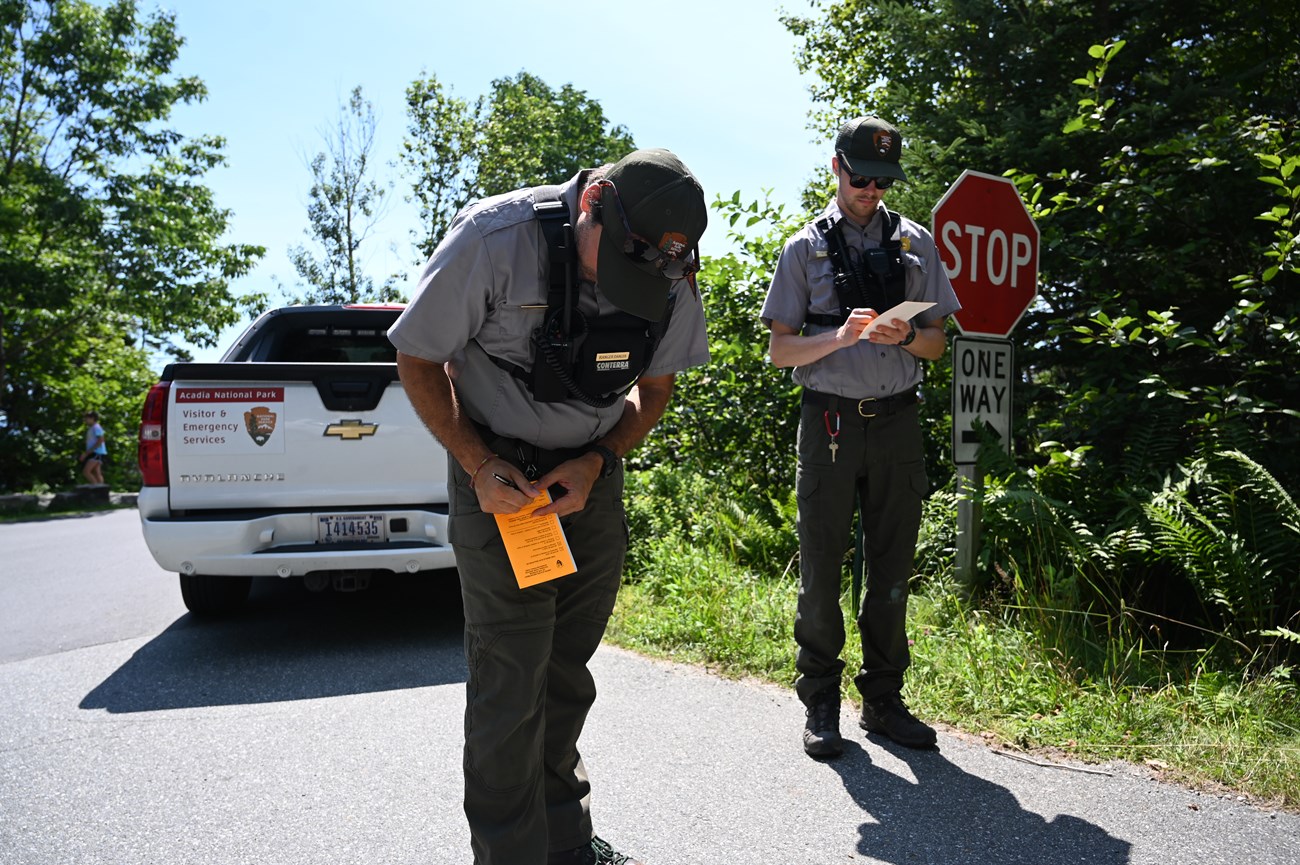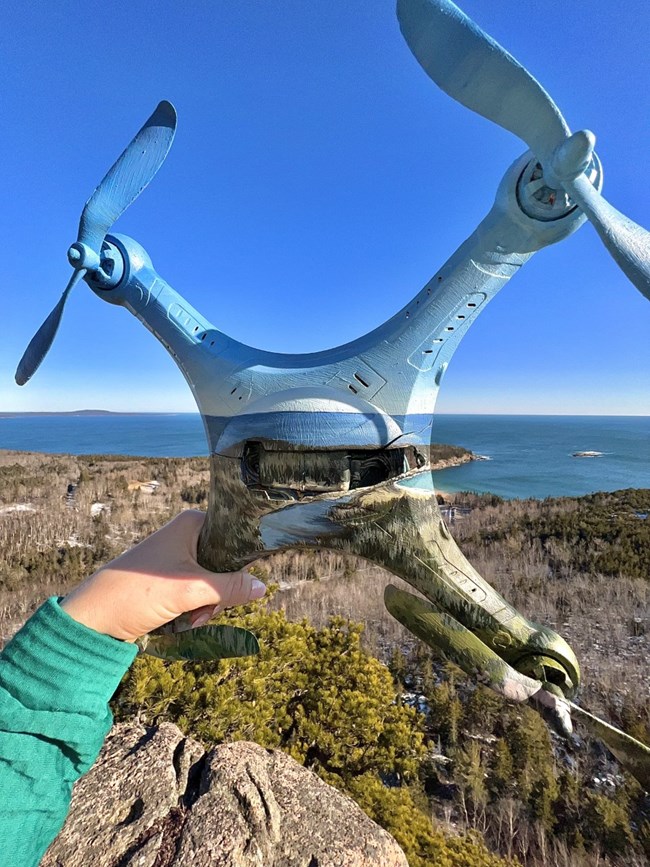
Jack Byrley, NPS Photo Key Regulations for Park Visitors to KnowPark rangers enforce a number of federal regulations in the park, including the Code of Federal Regulations, Title 36 (36 CFR), and the United States Code, Titles 16, 18, and 21. Within 36 CFR, park superintendents are granted the right to make park-specific regulations to maintain public health and safety, protect environmental or scenic values, protect natural and cultural resources, aid in scientific research, provide for equitable use of facilities, and avoid conflict among visitor use activities. AccidentsAccidents must be reported to park rangers if property damage or personal injury are involved.Alcohol Use/PossessionThe following areas are closed to the consumption of alcoholic beverages, and/or to the possession of a bottle, can, or other receptacle containing an alcoholic beverage that is open, or has been opened, or whose seal has been broken or the contents of which have been partially removed:
ATVs/MotorbikesAll motorized vehicles are prohibited on park trails and carriage roads. All-terrain vehicles are not allowed anywhere in the park.CampingCamping is permitted only in designated campsites at Blackwoods, Seawall, Schoodic Woods, and Duck Harbor (Isle au Haut) Campgrounds. For more information, visit the camping page.DronesLaunching, landing, and operation of unmanned aircraft, or drones, is prohibited in Acadia National Park. Learn more about drones in parks.Feeding WildlifeFeeding wildlife is prohibited. This includes gulls and any roadside begging animals. All stored foods must be in a hard-sided locker or vehicle, or kept in such a manner as to be inaccessible to foraging animals.Fires/FirewoodContained charcoal and wood fires are allowed only in campgrounds and designated picnic areas in park-provided receptacles or private grills.Dead wood on the ground may be collected for use as fuel for campfires within the park, provided that wood is not collected from within the campgrounds (except from park-provided wood piles) and chainsaws are not used to gather wood. Firearms in National ParksThe law governing possession of firearms inside a national park changed on February 22, 2010. Visitors may possess firearms within a national park unit provided they comply with federal, state, and local laws. The role of the responsible gun owner is to know and obey the federal, state, and local laws appropriate to the park they are visiting.For information about Maine guns laws that affect Acadia National Park see the following statute. Please remember that federal law prohibits firearms in certain park facilities and buildings. These places are marked with signs at public entrances. FireworksThe possession or use of fireworks or firecrackers is prohibited.FishingFishing is permitted in accordance with State of Maine laws. For more information, see Fishing.HorsesThe use of horses and other pack animals is permitted on the certain trails, routes, and roads in the park. For more information, see Horseback Riding.HuntingHunting and trapping are prohibited.In-Line SkatingRoller skates, rollerblades, roller skis, skateboards, and any other coasting devices are permitted on roads closed to automobiles.Island ClosuresA number of islands in the park are closed at certain times of the year to protect nesting bird species. For more information, see Boating.MarijuanaUse and possession of marijuana within Acadia National Park is prohibited by federal law MushroomsThe taking of mushrooms is prohibited. A mushroom is not a fruit, like a blueberry. It is a fruiting body -- the body that produces fruits, i.e. spores. For recreational harvest of mushrooms to be permitted, superintendents must be able to prove that such harvesting has no adverse ecological effect. Too little is presently known about mushroom ecology and the effects of harvest to permit such a determination. In fact, what is known suggests that the potential exists for harvest to have significant detrimental effects on mushrooms and their role in the ecosystem. ParkingParking is limited to specific areas in the park.PetsPets must be leashed (six feet or less) or otherwise physically restrained at all times. For more information, see Pets.PermitsPermits are required for activities such as scientific research and collecting, commercial photography/filming, commercial tours and activities, etc. Please see the Superintendent's Compendium for a complete list of activities and events that require a permit.Public Property/Natural and Cultural FeaturesThe possession, injury, destruction, removal, or disturbance of park property or natural resources, including animals, plants, minerals, cultural, and archaeological objects is prohibited. This includes collecting rocks, cobbles, plants, marine organisms, other natural materials, and historic objects and artifacts.RVs/Load, Weight, and Size LimitsRVs are permitted in the park, but some areas are not accessible due to low bridge heights or limited turnaround space. For more information, see Vehicle Restrictions.Seat BeltsFederal law requires that seat belts are worn when driving or riding as a passenger in a national park.SnowmobilesSnowmobiles are permitted in certain areas of the park. See Winter Activities.
Photo © Mariah Reading. Used with permission. No Drone Zone
|
Last updated: December 16, 2024
